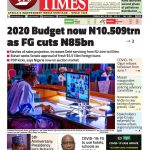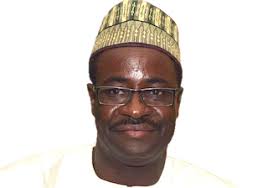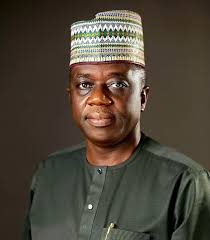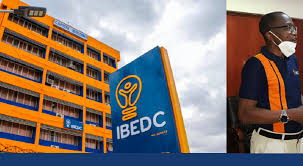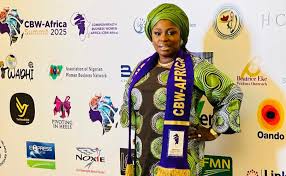2020 Budget now N10.509trn as FG cuts N85bn

…Slashes oil sales projection, increases Debt servicing from N2.4trn to N3trn
…Buhari seeks Senate approval of fresh $5.513bn foreign loans
…PDP kicks, says Nigeria now on auction market
Tunde Opalana, Abuja
The Federal Government has made a U-turn on the planned dropping of the 2020 Budget from N10.594 trillion to N9 trillion as it mulls just a reduction of N85 billion through a new proposal of N10.509 trillion.
Consequently, the earlier approved N2.4 trillion for debts servicing in the 2020 fiscal year is now jerked up to about N3 trillion, specifically N2.951.710 trillion.

Government’s new fiscal plan was made known in separate letters to both Chambers of the National Assembly on Thursday.
The newly proposed N10 .509 trillion is predicated on oil price benchmark of $25 per barrel as against $57 per barrel fixed for the earlier one.
Other underlying assumptions of the revised N10. 509 trillion budget are 1.93 million barrels oil production per day as against 2.3 million barrels oil production per day, earlier appproved exchange rate of N360 to a US dollar as against N305 to a US dollar earlier passed and approved.
Other critical components of the newly proposed N10.509 trillion budget are N398.505 billion as statutory transfers, N4.928.525 trillion as recurrent expenditure and N2.230.912 trillion as capital expenditure.
The President in the letter explained further that aggregate revenue for funding the now revised 2020 budget is N5.09 trillion which is 35% or N2.78 trillion less than the one passed by the National Assembly and signed into law by him in December 2019.
Part of the N85 billion reduced from the earlier approved 2020 budget is N11 billion deducted from the N110 billion capital votes allocated to the Judiciary in the previous budget.
These deductions, however, did not pass unchallenged as the Chairman, Senate Committee on Judiciary, Human Rights and Legal Matters, Senator Micheal Opeyemi Bamidele (APC Ekiti Central), kicked against it during debate on general principles of the revised 2020 Appropriation bill on Thursday.
Senator Bamidele said the earlier votes of N110 billion given the Judiciary was not in anyway, enough to drive efficiency within the arm of government, let alone, N99 billion it is reduced to now.
“Many of the courts have no airconditioners and functional public address system which were expected to be procured through the earlier approved votes.
“I most humbly submit very strongly that the N110 billion approved for the arm of government should be retained in the revised proposal if it cannot be increased,” he said.
Senator Mathew Urhoghide (PDP Edo South), in his own contribution, called for caution on the increased external loans taking, as according to him, the latest move, has jerked up debt serving for the 2020 fiscal year from N2.4 trillion to N3 trillion.
He also called for specifics on proposed N213.5 billion COVID-19 intervention fund in knowing exact amounts to be expended on what and what.
“Lumping an intervention fund together in a budgetary proposal like this is not good as far as issues of transparency and accountability are concerned.
“The relevant committee that will later interface with officials from the executive arm of government should ensure that this is done for the purposes of effective and efficient oversights later by the National Assembly, ” he said.
Earlier in his lead debate on the revised appropriation bill, the Senate Leader, Senator Yahaya Abdullahi (APC Kebbi North), said most of the assumptions underpinning the 2020 FGN Budget have had to be revised in the face of current realities, as Nigeria is vulnerable to the current global economic disruption caused by the COVID-19 crisis which has led to decline in crude oil prices and spikes in risk aversion in the global capital markets.
He said: “Prior to the outbreak of COVID-19 pandemic, the Nigerian economy had been characterised by wavering external sector and improving internal economic indicators.
Over-dependence on oil revenue, constrained fiscal space, low foreign and domestic investments and declining foreign reserves made the economy disproportionately vulnerable to the twin shocks of crude oil price/production collapse and a health crisis affecting negatively the informal sector which accounts for over half of the Nigeria’s GDP.
Keyamo bows to pressure, allots 10 percent recruitment slots to politicians
“Following the revision of key macroeconomic parameters, projected oil revenues for 2020 have been significantly reduced. Adjusted downwards also are non-oil revenue projections, including various tax and customs receipts.
Additionally, the First-Line deductions by NNPC for Federally Funded Upstream Projects/Expenditures have been significantly reduced by 65% from N1.223 trillion to N424.23 billion.
“These cuts include the removal of N457.50 billion provision for premium motor spirit (PMS) under-recovery, With the re-introduction of a Price Modulation Mechanism (tied to international price movement) as the basis for pricing PMS going forward.
“The aggregate revenue available to fund the 2020 budget is now projected at N5.09 trillion (35% or N2.78 trillion less than 2020 Budget passed by National Assembly). 26% of this projected to come from oil related sources while the balance is to be earned from non-oil sources.
“The provision of Stamp Duty was reduced to N200 billion from N463.95 billion, while Signature Bonus is down to N350.52 billion from N939.30 billion. With the retained revenues of the ten major Government-Owned Enterprises (GOES), the aggregate FGN revenue is projected at N5.56 trillion.
“The 2020 Appropriation Act (Amendment) Bill is now predicated on Oil production of 1.93 million barrels per day and a benchmark oil price of $25dollar per barrel.
“The official exchange rate has also been adjusted upwards to N360/ US$1 by the Central Bank of N igeria (CBN). At the Importers and Exporters Foreign Exchange (IEFX) window, where the bulk of foreign exchange transactions are consummated, the exchange rate recently depreciated from about N360/ US$1 in January, 2020 to over N385/US$1”.
Consenting to the proposal, Senators Ibrahim Yahaya Oloriegbe (APC Kwara Central), Adamu Aliero (APC Kebbi Central), Lillian Uche Ekwunife (PDP Anambra Central) and Albert Bassey Akpan (PDP Akwa Ibom North East) among others during the debate, said the the revised appropriation bill was in order.
In his remarks, Senate President, Ahmad Lawan, directed the Committee on Appropriation along with Finance to work on it and the MTEF)FSP paper between now and Tuesday next week.
Also on Thursday, amidst growing concern for the sky – rocket increase in Nigeria’s external debt, President Muhammadu Buhari approached the Senate for aporoval of a fresh $5.513 billion foreign loans.
His request for parliamentary approval was contained in an executive communication read on the floor of the Senate by the Senate President, Ahmad Lawan.
In the request letter, the President said it became imperative for funding the revised 2020 budget and insulating the nation’s economy from the yet to be abated COVID-19 pandemic.
The sources for the loans are the International Monetary Fund (IMF) – $3.4bn, World Bank – $1.4bn, Africa Development Bank – $500 million, Islamic Development Bank – $113m among others.
The President added in the request that the loans being urgently sought for are targeted at critical areas of funding of the 2020 budget, execution of critical projects slated for 2020 fiscal year and projects to support the state governments.
According to him, the request by the Executive arm of Government is “in accordance with the provisions of Section 21 of the Debt Management office Establishment Act 2003, and Section 41 of the Fiscal Responsibility Act 2007.”
He wrote: “As the Senate may be aware, the COVID-19 pandemic has resulted in economic and fiscal challenges for many countries.
Nigeria has also being affected in this regard, especially with the lower demand for crude oil which has affected our sales, and the sharp decline in the price of oil below $25 USD per barrel, which is much lower than the $57 per barrel benchmark in the 2020 Appropriation Act.
“The COVID-19 pandemic has also created the need for additional expenditure in the health sector. All of these have necessitated the review of the 2020 budget and the Medium Term Expenditure Framework 2020-2022.
“Following from paragraph 2, the draft revised budget proposed by the Executive for 2020 has a higher deficit. In order to finance this deficit, the Federal Government is planning to raise funds from both domestic and external sources.
“For the External component, the government is negotiating with multi-lateral institutions for funding on concessionary terms. The facilities totaling $5.513 billion being arranged in this regards are detailed in table 1.”
The President explained further that the Proposed External loans to finance revised 2020 budget deficit are from the International Monetary Funds (IMF) $3.4 billion; World Bank, $1.5 billion; African Development Bank, $500 million; and Islamic Development Bank $113 million.
“In addition to the financing required for the revised 2020 budget, financing is also required for some priority projects of the Federal Fovernment to address the COVID-19 pandemic and improve Nigeria’s food security”, President Buhari explained.
Giving a breakdown on how the $5.513 loan would be applied, Buhari disclosed that the proposed $600 million loan from the Islamic Development bank would be used to fund projects to support of Nigeria’s response to challenges caused by COVID-19; while the sum $125 million from the African Development Bank would be used for strengthening of Healthcare system to improve response to COVID-19.
He added that Financing Small Farmers to mitigate food security impact of COVID-19 would cost $23 million; while $500 million from the African Export Import Bank would be used for the Provision of critical medical supplies to combat COVID-19.
On a proposed loan of €995 million loan from the Export Import Bank of Brazil, he stated that the amount would be used to enhance mechanisation of Agriculture and Agro-processing in Nigeria.
“The Islamic Development Bank has indicated that only $113 million of financing will be available to the Federal Government of Nigeria in the 2020 fiscal year to enhance the government’s COVID-19 response, which will come from restructuring of previously approved but inactive facilities for Nigeria,” the President added.
He further disclosed that a loan request to the World Bank between $500 and $750 million would be used to fund State fiscal transparency, accountability and sustainability Programme; and to implement COVID-19 Action Recovery and Economic Stimulus Programme to support state level efforts to protect livelihoods, ensure food security and stimulate economic activity.
The requests for the consideration and approval of the $5.513 loan request was referred by the Senate President, Ahmad Lawan, to the Committee on Finance; Local and Foreign Debts.
The Committee is expected to report back to the upper chamber during plenary next Tuesday.
Meanwhile, following President Buhari’s request for Senate spproval of a fresh $5.513b loan, the Peoples Democratic Party (PDP) has raised the alarm that with the volume of foreign loans being accumulated by the government, the nation and her people have been placed on the international auction market.
The party said President Buhari’s moves to take a fresh $5.513 billion (N2.1 trillion) loan in addition to an earlier $22.79 billion (N8.5trillion), the size of 2020 budget, without operable repayment plans, will totally compromise the fiscal integrity of thenation and open her up for economic annexation by foreign creditors.
The party in reaction yesterday by its punlicist, Kola Ologbondiyan, said an N850b loan from the capital market is an additional debt burden on the country.
The PDP added that it is more alarming that the Buhari government, in this fiscal year, cannot muster the capacity to harness the huge resources available in the country to generate even half of the sum of its own budget, but has been going cap in hands to shop for foreign loans.
The PDP expressed fears that with this situation, the APC administration is practically driving the nation to the brinks while exposing Nigerians to the risk of modern day slavery by mortgaging the future to economic appropriation by foreign interests.
“Already the situation has created apprehensions, anxiety and trepidation among the citizens, particularly the youths, who are now scared about their future and the survival of our nation under the APC.
“It is even more distressing that this administration cannot account for the loans it has taken so far. In spite of the deluge of loans, the lives of the ordinary Nigerians, on whose behalf they claim to be amassing these debts, have become worse than the APC and Buhari met them in 2015.
“Painfully, even the savings made by previous administrations have been opened up for pillaging by APC leaders and the cabal in the Buhari Presidency”, it said.
The PDP called on Nigerians to look beyond their primordial differences and unite in speaking against this accumulation of debts, stressing that it is no longer about political party affiliations, creed, ethnicity, class or age. We all must unite in one voice to save the nation from an imminent collapse.
The party further said “our party holds that rather than mortgaging our nation to foreign interests, President Buhari should immediately cut the size of his government, slash its over bloated budget, clip its luxuries, curb unbridled corruption in his administration and make haste to recover the N14 trillion that was stolen by APC leaders under his watch.
“If the N14 trillion stashed away by APC leaders and the cabal is recovered, our nation will not be in need of these humongous foreign loans”.
The PDP also urged the National Assembly to stand on the side of the people and save the nation by immediately using its legislative instrument to check this unbridled appetite for foreign loans.



